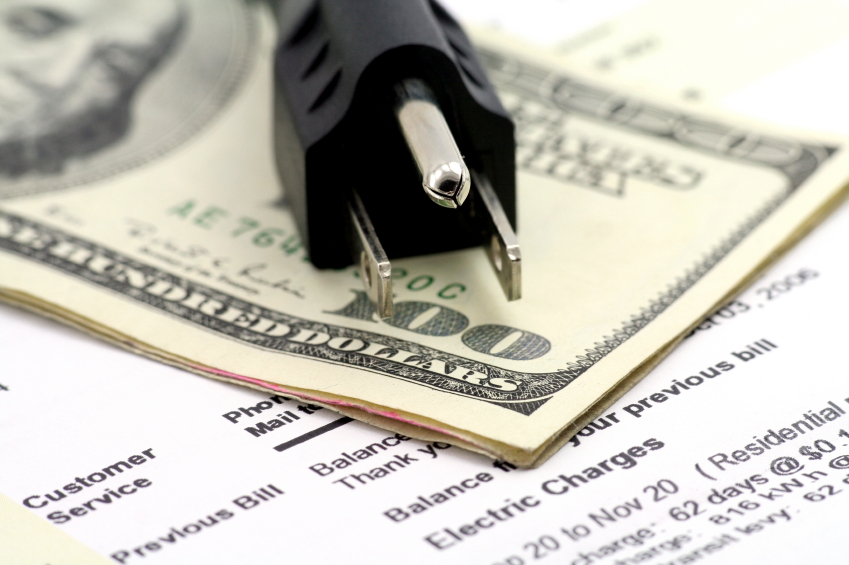Are You Overpaying for Electricity?
 Your electric bill is probably increasing, even if you still turn off the lights whenever you leave the room. Both electric rates and additional fees on electric bills are going up around the nation. However, you can minimize cost spikes by carefully reading your bill, checking (and reducing) your consumption, and comparison shopping.
Your electric bill is probably increasing, even if you still turn off the lights whenever you leave the room. Both electric rates and additional fees on electric bills are going up around the nation. However, you can minimize cost spikes by carefully reading your bill, checking (and reducing) your consumption, and comparison shopping.
Check their Work
The convenience of automatic bill pay and online banking comes with a danger. We may become less diligent about reviewing utility bills, and even miss a major spike or an erroneous charge. Even if you don't have to write a check, review the usage listed on your bill every month. Compare electric usage to previous months in kilowatt-hours, not dollar amounts. The actual bill may vary for the same amount of electricity depending on added fees or rate hikes, but more on that later.
The average home uses 920 kilowatt-hours (kWh) of electricity per month, according to the U.S. Energy Information Administration. It's fairly easy to use less than the average by turning down the thermostat, switching off vampire appliances, etc. However, if your bill shows significantly higher consumption, either you or the electric company may have a problem.
• An unusually high bill may simply be an accounting error or a misread meter. You can double-check the electric company's work by looking at your meter. It should be slightly higher than the meter reading at the end of your last billing period.
• If the meter and the bill match, but the usage seems abnormally high, check the meter is working correctly. It should stop spinning when you turn off every appliance, light and gadget (however, shutting off all your breakers is an easier, more foolproof test). If it still spins, maybe either your meter is broken or a neighbor's circuit is inappropriately wired onto it. Ask your utility company to test the meter for accuracy.
Shop Around
If the meter is working and the usage is reasonable, but the bill is unreasonable, you may have more options than you think. Many states have recently opened their utility markets to new competitors. Texas has a particularly robust electricity market. I found more than 20 rate plans from at least six providers for a ZIP code in Dallas.
Your area may still effectively have a monopoly, but the company could offer various rates. Look for long-term contract savings and low-income discounts. Also, opt out of any renewable-energy premiums if your only goal is a lower electric bill.
Know Your Usage
If you are getting the best possible rates and the meter is working, faulty wiring or a faulty appliance may have caused the spike in your bill. If you switch off all the breakers and the meter stops running, test each circuit and each appliance. Unplug everything, then individually turn on breakers and plug in each item.
If the meter starts to spin with a breaker on but nothing running on that circuit, you may have faulty wiring. More likely, the meter will really get going when you turn on the air conditioner or other electricity hog. Use a watt-hour meter, such as a Kill-A-Watt, between the outlet and the appliance to check the true energy usage of your devices and appliances.
For help using electricity more efficiently and reducing your utility bill, consult a reliable professional electrician.
Updated October 7, 2018.
Looking for a Pro? Call us (866) 441-6648

Electrical Average Costs
Electricians Experiences

Restaurant Ceiling Fan Installation To Beat The Florida Heat

Electrical Installation As Part Of A Living Room-to-Office Conversion



